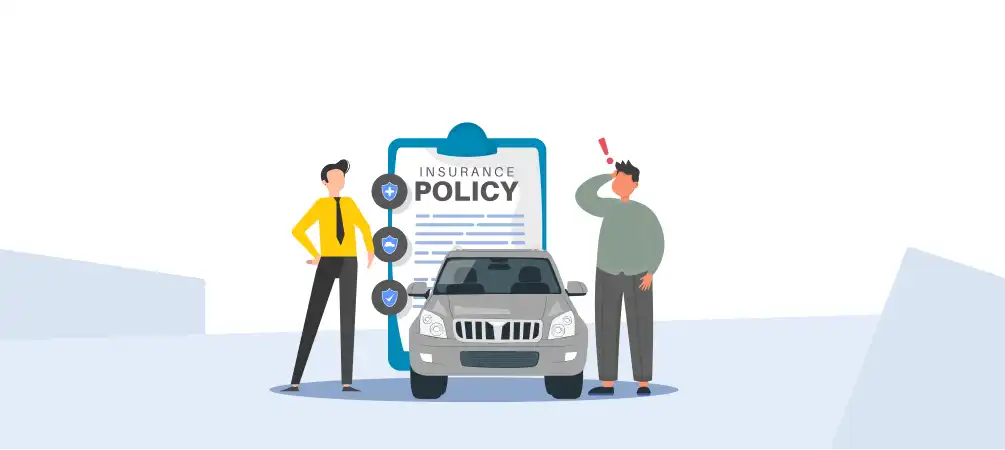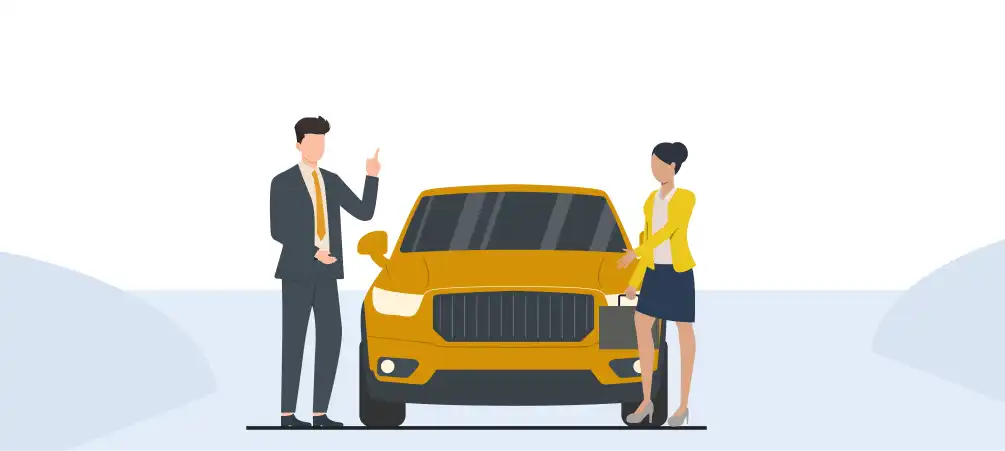Pre-Owned Car Inspection: What To Check
Many people in India opt to buy a pre-owned or used car instead of a new one. The reasons could vary from value for money, reduced formalities, to access to good deals with finance options. For these and many other reasons, buying a used car could be an advantageous decision. In India, buying a pre-owned car involves some documentation and procedures. To comply with this, you must know and adhere to the law. Along with this, there are important aspects to consider and plan ahead of a used car purchase.
This pre-owned car inspection checklist will help you cover all aspects thoroughly. Perhaps it can even help you identify potential problems and safeguard your own interests before making a purchase.
Make sure you're getting a favourable deal by following these pre-owned car buying tips and having the vehicle inspected thoroughly before you buy it.

Table of Contents
Exterior Inspection
Your first check begins before starting the engine. In some instances, you may be able to ask for the service history or record from the dealership. This is a known practice, especially for higher-end or luxury cars.
You should also personally inspect the car. A slow walk-around reveals much about the car’s history.
- Body panels and paint: Look for dents, mismatched colours, overspray, or uneven panel gaps. These may suggest past accident repairs.
- Rust-prone parts: Inspect the underbody, boot floor, door sills, and wheel arches for signs of rust. Surface rust can be fixed; structural rust affects safety.
- Glass and lighting: Inspect the car and the glass surfaces, such as the windshield, windows, and rear window for any chips or cracks. Inspect or check to ensure that all headlights, tail lamps, and indicators are clean and functioning correctly.
- Tyres: Check the tread depth and examine wear patterns on all four tyres, including the spare. If you will need to replace tyres, that will cost some money and can be factored into the buying price.
- Vehicle Identification Number (VIN): Verify that the VIN on the car matches the one on the RC to ensure it's authentic and you will not face an issue at a later date.
Spotting exterior or structural issues early lets you negotiate or walk away before spending more time or money.
Interior Inspection
The condition of the cabin reflects the level of care the car has received. It will also affect your experience of using the car - this matters even more so in pre-owned cars.
- Odour and moisture: Musty odours or damp carpets may indicate water damage.
- Controls and systems: Verify that the air conditioning, heating, infotainment system, windows, wipers, horn, and central locking are all working correctly.
- Instrument cluster: The warning lights on the instrument cluster should briefly illuminate when the ignition is turned on and then turn off once the engine has started.
- Seats and seatbelts: Keep a close watch for signs of wear on your seats and seatbelts. Make sure your seatbelts slide back smoothly and lock securely when you fasten them.
- Trim and roof lining: Check for stains or sagging, which may indicate leaks.
A tidy and stylish interior makes the space more comfortable and shows how much you care about keeping things in order.
Mechanical and Under-the-Hood Check
Engine bays offer crucial insights into the vehicle's condition and upkeep. It is a useful check that can give you a clear picture of the condition of the car and the value in relation to the quoted second-hand price.
- Fluids: Inspect the engine oil, coolant, brake fluid, and power steering fluid levels to ensure they are adequate and free from dirt or debris.
- Leaks: Check for signs of engine block and gasket leaks. Typically, the area beneath the vehicle may give away signs of oil or coolant leaks.
- Belts and hoses: Examine belts and hoses for stiffness, fraying, or cracks to ensure the vehicle operates smoothly and dependably.
- Battery: Make sure the battery terminals are clean and that the clamps are securely tightened. Verify that the battery isn't too old.
- Transmission: Shifts should be smooth, and if visible, the fluid should be clean.
This examination is very important since the mechanical health of the car will have a direct impact on any repair or maintenance expenses that may arise after purchase. Certified cars may have already undergone this check, and you can request further details. In case of unverified second-hand dealings, it is better to have a mechanic complete these checks or ask for this update.
Suspension and Frame Check
These parts are vital for safety and comfort.
- Bounce test: Stand beside the car and press down on a corner and release. One smooth rebound is normal; extra bouncing could mean worn shock absorbers.
- Underbody and frame: Inspect for rust, bends, weld marks, or patchy underbody coating that might signal repairs.
- Joints and bushes: Listen carefully for any clunking sounds while driving over bumps, and check for visible cracks in joints and bushes.
- Misalignment signs: Uneven tyre wear or an off-centre steering wheel can point to alignment problems.
A compromised chassis or suspension can directly impact safety, so it is advisable to address these issues before making a decision.
Checklist for Test Drives
A single test drive of a used car can reveal issues that static inspections might miss.
- Cold start: The engine should start smoothly, operate quietly at idle, and produce no unusual emissions.
- Steering: The vehicle must stay on a straight path without wobbling, even when travelling at high speeds.
- Brakes: The brakes should operate smoothly and quietly and should not cause the car to pull to one side.
- Acceleration and gears: The power should increase steadily as you change gears.
- Noise: Listen for any whining, rattling, or clunking sounds during your test drive.
This comprehensive test drive checklist will help confirm the current performance level of the car and identify potential handling issues. These are important facts to consider while making your decision.
Certified Used Cars vs Regular Used Cars
- Certified used cars: They are inspected by authorised dealers or manufacturers, with detailed reports and sometimes warranties.
- Regular used cars: Since the condition varies, buyers should be cautious when inspecting them.
- Price: Although certified vehicles might cost more, they provide greater confidence in their condition, history, and documentation due to their verified status.
Deciding between certified cars and used cars should depend on your budget and risk preferences.
Documents that should be verified
- Registration Certificate (RC): Check that the seller's name and car information, including the VIN, are correct and match perfectly.
- Loan clearance: If the vehicle was purchased on a loan, ensure you have documentation of complete repayment, such as a No Objection Certificate (NOC) from the bank and Form 35 from the Regional Transport Office (RTO).
- Ownership transfer forms: To formally transfer ownership, complete and submit Forms 29 and 30 online or in person at the RTO.
- Car Insurance Policy: Make sure the coverage is still valid. Maintain coverage by transferring the insurance to your name within 14 days of the purchase date.
- Pollution Under Control (PUC) certificate: As required by Indian road laws, ensure that this certificate is up-to-date.
- Road Tax receipt: This document confirms the payment of lifetime road tax, which is necessary for refunds or interstate transfers.
- Original Purchase Invoice: Request the original invoice, as it confirms the date of purchase. It will also be required for insurance and warranty purposes.
- Fitness Certificate (FC): This is required for cars older than 15 years to certify they are still roadworthy.
Proper documentation protects ownership and prevents avoidable regrets or inconveniences later on.
Conclusion
A holistic used car inspection checklist integrates exterior, interior, mechanical, and legal inspections into a thorough process. You can be confident in your choice by following these Here are some suggestions for buying a used car, completing a test drive checklist, and comparing certified used cars with non-certified ones.
Once you've decided on your car, secure it with Shriram Car Insurance! We provide customised plans for pre-owned cars, with easy paperless policies and speedy renewals. With add-ons such as Zero Depreciation and Roadside Assistance, you can protect your investment with complete coverage right from the start. If you have any questions, our customer service team is always available to assist. Discover our plans today!
FAQs
1. What should I look for when I buy a used car?
Examine the exterior, interior, engine, suspension, and documentation to assess the car's condition, followed by a test drive to evaluate its performance. Ask for and validate owner’s identification documents and car papers such as RC, Lifetime tax receipts, insurance policy document and others.
2. How can I check the car's engine and suspension?
You can ask the seller to provide latest service record. Or you can engage a mechanic to help you check key aspects. Mainly, you must check the fluid levels in the engine, make sure the belts and hoses are in good condition, and inspect for leaks. In addition to physical inspection, a test drive will help. During the drive, pay attention to strange sounds, check the bushings and bounce test the suspension.
3. Is a certified used car better than a regular one?
Certified used cars come with completed inspections and sometimes warranties. This means greater reassurance despite the pre-owned status of the car. However, this may make certified used cars marginally more expensive than similar models that are not certified and available in the regular used car market.
4. What documents should I verify before purchase?
Check the documents you will need as the owner of the car. Since you will have to complete the transfer process after purchase, the document checklist for transfer is a good set to check. These documents include the RC, Insurance policy doc, PUC, and Loan statement in case of hypothecation or car loan, Original invoice for purchase and current owner’s Identity proof and PAN card.
5. Can I get a warranty on a used car?
Yes. Many certified used cars include warranties, and some used car dealers offer paid extended coverage on their listed pre-owned cars. It is best to ask about this and not assume warranty coverage exists.



 4179
4179


















